The Pull of the Stars began over sixteen years ago when I was in premature labour with our first child who, as a playful five-year-old, would be my model for Jack, in Room. It took the caring coaching of two midwives as well as rapid (literally) hands-on intervention by an obstetrical surgeon to bring me and Finn safely through. As I’ve shared this story over the years, I’ve learned that many others I know have had a near miss on that most dangerous day of women’s and babies’ lives. (In 2011 we lost the extraordinary actress Michal Friedman, who plays Jack in the multi-voiced audiobook of Room, when she was giving birth to twins.)
…a review of several centenary histories of the Great Flu (aka Spanish Flu) of 1918–19 seized my imagination with its images of a weird urban landscape of masked figures, devastating economic shutdown and sudden, random death.
In another sense, I started this novel in October 2018 when I accidentally left my laptop charging at home before taking the train to the Toronto International Festival of Authors. I passed the hours reading every word of The Economist, and a review of several centenary histories of the Great Flu (aka Spanish Flu) of 1918–19 seized my imagination with its images of a weird urban landscape of masked figures, devastating economic shutdown and sudden, random death. Researching and feverishly note-taking on my phone, I found that tiny detail that would become the seed of The Pull of the Stars: pregnant women were particularly vulnerable to catching the Great Flu and suffering premature birth, stillbirth or death as a result. Where in a hospital would they put flu patients who were in labour, I wondered? I pictured a makeshift quarantine ward, small enough at a pinch to be run by one overworked nurse/midwife, or maybe one nurse and a volunteer helper . . . Another of the claustrophobic ‘rooms’ I have a habit of writing about, one where women wage what my protagonist Nurse Julia Power calls ‘our war’.
The pandemic of 1918–19, very likely worsened by the First World War, had a reach that was just as global as the fighting, and killed more people (at least 3 per cent of the human race). I set The Pull of the Stars in Dublin partly because that’s my home town, so Irish idiom comes most naturally, but mostly because Ireland was going through a third cataclysm in those years of war and pestilence, a political and cultural one. In 1916, when the six-day Easter Rising startled the nation, most of George V’s Irish subjects – my four grandparents included – would have been flummoxed by the notion of an independent republic. But at the next general election in December 1918, the persecuted activists of Sinn Féin (including Dr Kathleen Lynn from my novel) won by a landslide and set up their breakaway assembly, Dáil Éireann, the Republic of Ireland’s parliament to this day. (I have relatives who served on both sides of the painful Civil War of 1922–3 that followed.) So one question I wanted to ask in this novel was what happened between 1916 and 1918 to transform so many of us from loyal royalists to republican patriots? What must it have been like to be living at a time when so much changed so fast?
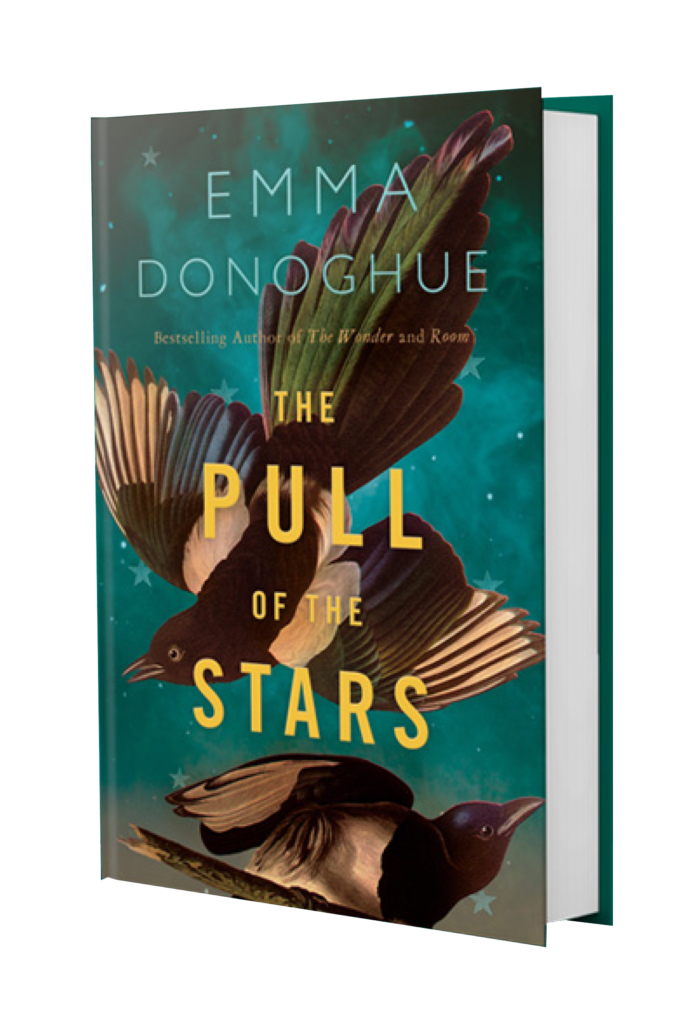
Healthcare workers are in the spotlight, the heroes of our collective tragedy.
Speaking of which. When I sold The Pull of the Stars in October 2019 it seemed like a historical novel, even if it had an atmosphere that could be called post-apocalyptic. Two days after I delivered the final draft, this March, COVID-19 was declared a pandemic. Healthcare workers are in the spotlight, the heroes of our collective tragedy. The Pull of the Stars has benefited from the care of both midwife Maggie Walker and the peerless Dr Tracy Roe (copyeditor and emergency medicine physician), who somehow during the pandemic caught my mistakes and saved real lives at the same time. Influenza literally means influence – the way stars were thought to shape human health and welfare. I hope The Pull of the Stars moves you and that you stay well. Warm wishes and thanks for supporting my books over the past quarter of a century.
Emma Donoghue
The Pull of the Stars is available in your local Dubray and on our website.
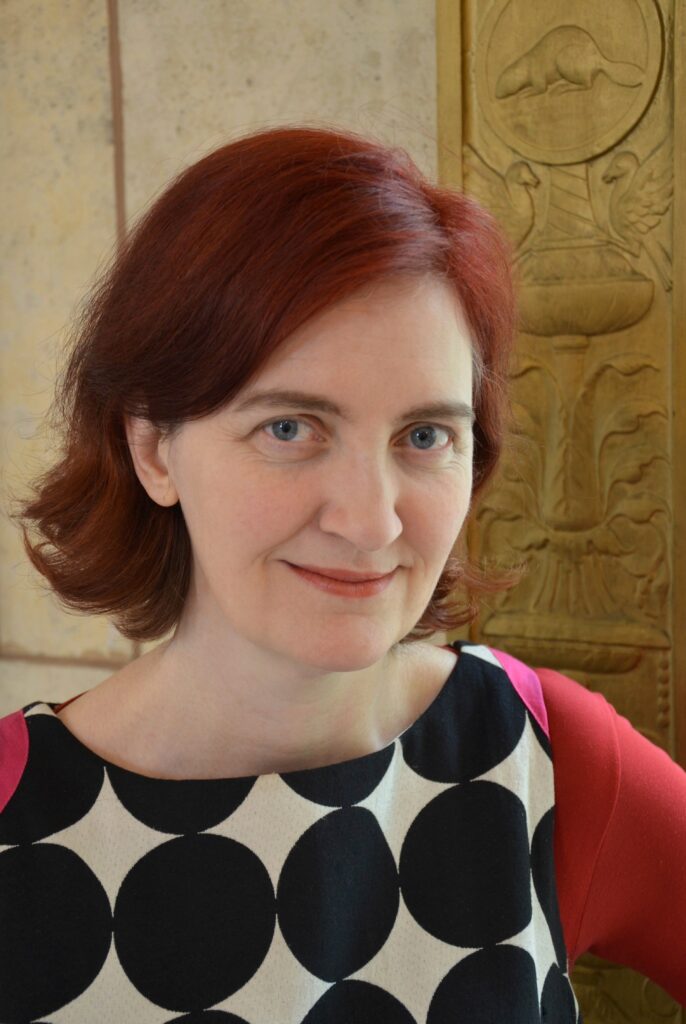
Emma Donoghue was born in Dublin, and now lives in Canada. She is a graduate of University College Dublin and Cambridge University. Donoghue’s first novel was 1994’s Stir Fry, followed in 1995 by Hood, which won the Stonewall Book Award for Literature. These were followed by several highly successful novels notably 2010 novel Room which is told from the perspective of a five-year-old boy, Jack, who is being held captive in a small room along with his mother. The story was inspired after Donoghue read about five-year-old Felix in the Fritzl case, and a 2008 court case in which a Pennsylvania woman held her children captive for eight years in a small room similar to the one in the novel. Room was longlisted for the Orange Prize; shortlisted for the Man Booker Prize, the Rogers Writers Prize, the 2010 Governor General’s Awards in Canada and was the winner of an Irish Book Award 2010 and The Commonwealth Writers Prize. She later wrote the screenplay for a film version of the book, Room (2015), for which she was nominated for an Academy Award, Golden Globe and Bafta Award.
Her novel Frog Music was published in 2014. The Wonder, published in 2016, was shortlisted for the Scotiabank Giller Prize. She has also written a highly acclaimed novel for younger readers – The Lotterys Plus One. Her last novel AKIN was published in 2019 and her new novel The Pull of the Stars will be published in July 2020



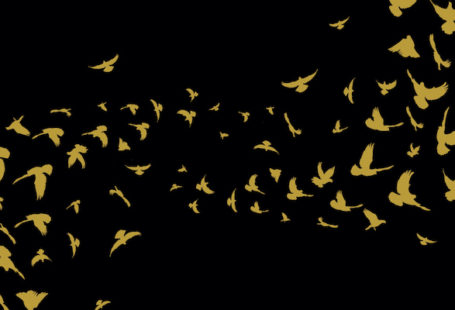
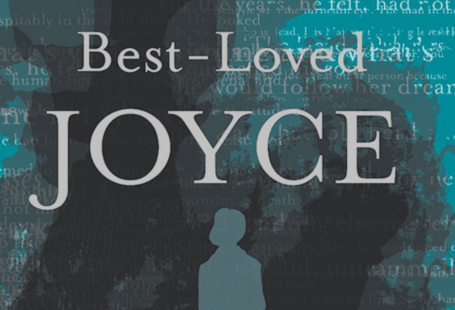
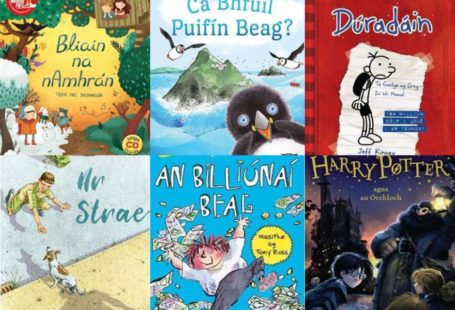
Recent Comments